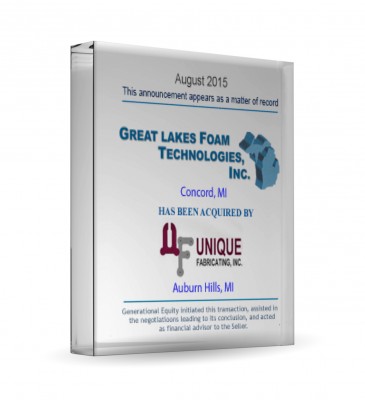
5 Value Drivers from a Business Buyer’s Perspective
By Generational Equity
06/30/2014
A few weeks ago the M&A Source hosted a webinar entitled “Value Drivers and Business Models” lead by James Darnell, a partner with KLH Capital. KLH Capital is a “fully capitalized SBIC-licensed private equity firm, which currently manages $165 million in capital across two funds. During their nearly 30-year business tenure, they have successfully completed more than 130 transactions, including recapitalizations, management buy-outs and buy-ins, family successions and retirement transitions, and corporate divestitures.”
Based on their track record, KLH’s perspective on the acquisition process can be quite enlightening. Their information was delivered from the viewpoint of a private equity firm actively acquiring privately held companies. Since many of our loyal readers are business owners who eventually will be looking for investors, I thought I would share with you KLH’s insight regarding how they view their targets, items that add value to an opportunity for them, and generally what they look for when they examine potential investments.
According to James Darnell, KLH looks for five key “value drivers” when they examine a potential target company:
- The quality of the customer base
- A company’s industry and end markets
- The supplier base
- The competitive skills of the target
- Key management and the quality of the financial data
Some key questions they ask for these five value drivers include:
- Customer Base: Who are the customers? How does the company make money? Is there customer concentration (a common issue)? How many customers does the target have? What does the sales force look like, or is the owner the sales force? How difficult is it for customers to find alternative suppliers?
- Industry and End Markets: How discretionary are the purchases? How big is the market? Can market share be expanded? Are the industry/end market(s) growing or contracting? Is the business driven by cycles? How recession-resistant is the company? How impacted is the industry by federal/state/local regulations?
- Supplier Base: Does the company have supplier concentration issues? How difficult would it be to switch suppliers? Can the supplier go direct to the end user, cutting the target out? Who are the suppliers (are they blue chip)? If contracts are in place, are they transferable?
- Competitive Skills: How unique are the products/services? Are they specialized? Are there alternatives available to the market? Most importantly, why do the customers buy from the target (and does the business owner know why)? Any potential product obsolescence?
- Management & Financials: Who are the key people? Why are they key? What does the seller want? Why is he/she selling? How organized are the financials? What type, if any, accounting software is used? Does the target have the ability to answer key financial questions? What MIS system is it using? Are methods of production/selling documented (or do they only exist in the owner's head)? Does the company have HR policies and guidelines regarding hiring, training, development, and termination?
Questions, Questions and More Questions
KLH is not unique with the questions it asks about value drivers. Most equity firms and strategic buyers will ask you some variation of these same queries. The question only you can answer is this: Are you prepared to answer them?
This is one of the most important services that Generational Equity brings to its clients. We help to prepare you in advance for these questions and many more from business buyers during our initial evaluation stage.
Another point that Mr. Darnell made is how vital it is for the Offering Memorandum that you prepare for potential buyers to be designed to answer these questions in a format that clearly highlights the value proposition your opportunity provides. This is really essential and is usually not a focus of business owners who look for buyers without professional representation. Simply put, most business owners are experts in successfully running their businesses; however, more often than not, they are not experts in financial analysis, industry research, competitive analysis, and creative deal presentation.
Leading M&A advisors like Generational Equity are, and it is for this reason we have sold more lower middle-market companies in North America than anyone else the last several years.
A special thanks to the M&A Source and James Darnell from KLH Capital for presenting this incredibly vital information and giving us an inside view of how professional business buyers operate.



